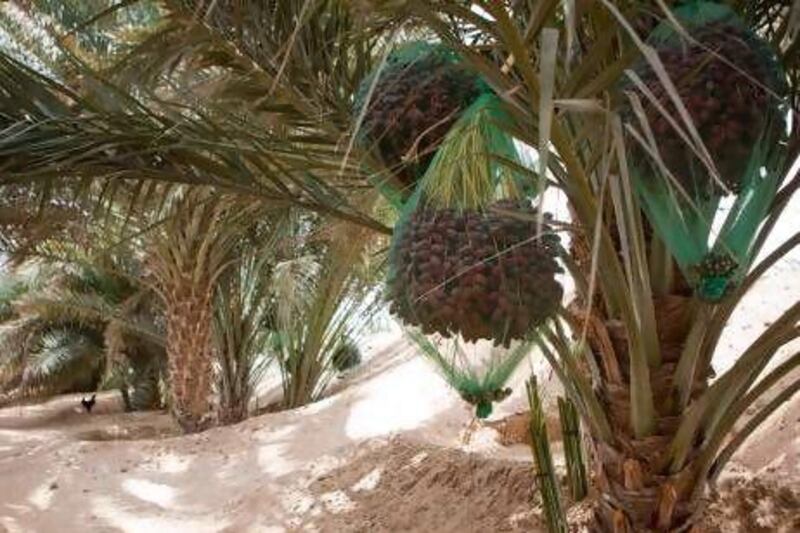DUBAI // Dates could provide a greater contribution to the UAE's economy if producers paid more attention to marketing, experts say.
A lack of promotion in the West has led people to miss out on the fruits of the world's first cultivated tree.
"Date palms face a serious challenge in terms of economy and trade," said Shuckri Bundakji, a Saudi Arabian author who led a major investment in date processing in his country. "Their imports are low and their competition [in the region] is high."
Mr Bundakji was speaking at this week's Agribusiness Outlook Forum in Dubai.
In 2008, the UAE produced about 755,000 tonnes of dates, or 11 per cent of the world's production,the UN Food and Agriculture Organisation says.
But without substantial, centralised marketing they do little to help the UAE to feed itself.
"Date palms consume a lot of water to produce dates and they're also difficult to harvest and maintain," said Mr Bundakji. "Apart from oil-rich countries, date-palm plantations are dwindling."
And no major food processor has expressed interest in them.
"This is because they are usually far from the agricultural area and from places that are not easy to work with," he said.
John Lawton, the manager of the Agricultural Technology Company in Riyadh, agreed marketing dates was a problem.
"If we only sold 10 dates to each person in Europe we would manage to sell all of them and have a healthier population throughout Europe," Mr Lawton said.
The palms flourish in two relatively small belts around the world: between 34° north, level with Beirut, and 24°north, level with Riyadh; and between 23°south, level with Sao Paulo, and 33°south, level with Valparaiso in Chile.
Consumer interest is largely confined to those areas.
About 7.1 million tonnes of dates are produced each year "and 90 per cent of it is consumed on site", said Mr Bundakji.
"People make a big mistake in marketing dates," he said. "They put little concern on the actual market that they're trying to penetrate and they don't go deeper into the actual agricultural practices of cultivating dates."
Mr Bundakji said marketers spent too much time on packaging and not enough on the product, which was a shame because it meant the potential was being overlooked.
As a desert native the palms should produce more fruit than many other crops, with the same amount of water, he said.
"Dates can be more productive [than] tomatoes and onions, for instance, per cubic metre of water," Mr Bundakji said.
He said if people paid more attention to the product, dates could become a significant, reliable food supply for the UAE.
"Trade and agriculture for date palms are viable," said Mr Bundakji.
"They are a strategic agricultural cornerstone for food security."






